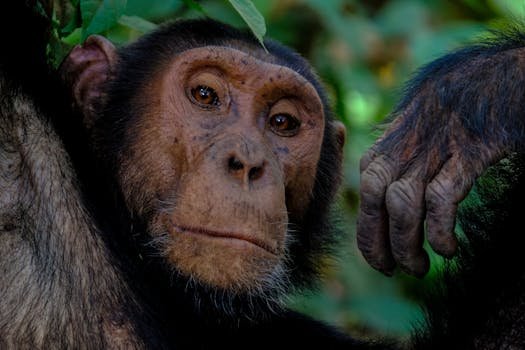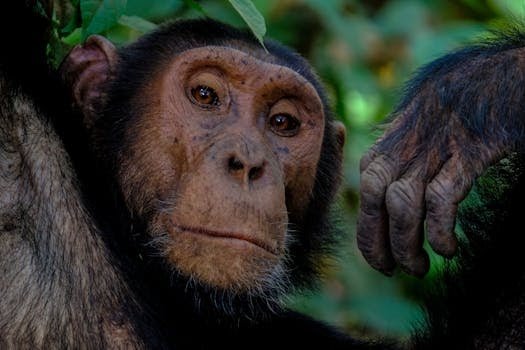Disclosure of the Intelligence Quotient for Chimpanzee 
Chimpanzees, our closest living relatives in the animal kingdom, have long captivated the curiosity of scientists and scientists with their remarkable cognitive abilities. Among the different questions that arise when you go into depth in the world of prime intelligence is one that stands out: What is IQ for a chimpanzee? In this article, we will explore the intricacies by measuring intelligence in chimpanzees, go into the depth of the factors that affect their cognitive capacity and shed light on the fascinating world of prime cognition.
The concept of intelligence quotient (IQ) has been a cornerstone of human psychology for assessing cognitive abilities. But when it comes to applying this metric to non-human animals such as chimpanzees, more challenges and considerations come into play. Unlike people who are predominantly evaluated through standardized IQ tests tailored to our species-specific cognitive skills, the evaluation of chimpanzee intelligence requires a different approach.
Researchers have devised different methods of measuring the cognitive abilities of chimpanzees, taking into account their natural behavior, problem -solving skills, social interactions and tool use capacity. A prominent method involves observational studies in their natural habitats or controlled laboratory settings where researchers can assess their ability to solve complex problems, demonstrate tool use, communicate with contecifics and show social learning.
One of the most famous examples of chimpanzee intelligence is seen in their tool making and tool-using. Shimpanzees have been observed mold tools out of twigs to extract termites from Hauger or use stones to crack open nuts. These performances not only show their ingenuity, but also highlight their capacity for forward planning and innovation.
Social intelligence is another important aspect of chimpanzee cognition. Living in complex social groups with intricate hierarchies and alliances, chimpanzees show a sophisticated understanding of social dynamics. They can recognize individuals in their group, predict the intentions of others, engage in collaborative behavior such as hunting or care and even show empathy to their co -members.
Language and communication also play an important role in understanding chimpanzee intelligence. While they may not have language systems as complex as humans, chimpanzees exhibit a rich repertoire of vocalizations, movements and facial expressions to convey information and emotions. Researchers have studied chimpanzing communication extensively to decipher the nuances of their vocalizations and body language, which reveals a nuanced system of signaling and interaction.
In addition to these observable behaviors, researchers have deep down the memory, problem -solving skills, spatial cognition and numerical abilities in chimpanzees. Studies have shown that chimpanzees have impressive memory functions, allowing them to remember past events, placements of food sources and social conditions for extended periods. Their problem -solving skills are also remarkable, where individuals show creativity and adaptability when facing new challenges.
When it comes to quantification of chimpanzee -intelligence in the form of an IQ score that is analogous to humans, researchers face inherent restrictions due to the different nature of prime cognition. While some attempts have been made to develop IQ tests specifically tailored to chimpanzees, these assessments often focus on specific cognitive domains rather than providing a comprehensive target for overall intelligence.
Furthermore, comparing the intelligence of chimpanzees with humans based solely on IQ scores overlooking the unique cognitive forces and adjustments that have evolved in each species. Chimpanzees are distinguished in certain tasks that challenge human cognitive abilities, such as spatial memory or pattern recognition in complex environments. Their capacity for social learning and cultural transmission also separates them from people in certain aspects of cognition.
In conclusion, the question of what IQ for a slip is may not be a straightforward numerical answer similar to human IQ scores. Instead, understanding of chimpanzee intelligence requires a holistic perspective that is considering their natural behavior, social interactions, problem-solving skills, communication skills and memory capacity. By embracing the complexity and diversity of prime cognition, we can get a deeper appreciation of the remarkable intelligence exhibited by our closest living relatives in the animal kingdom – chimpanzees.
https://www.youtube.com/watch?v=edwxzwowkxa
